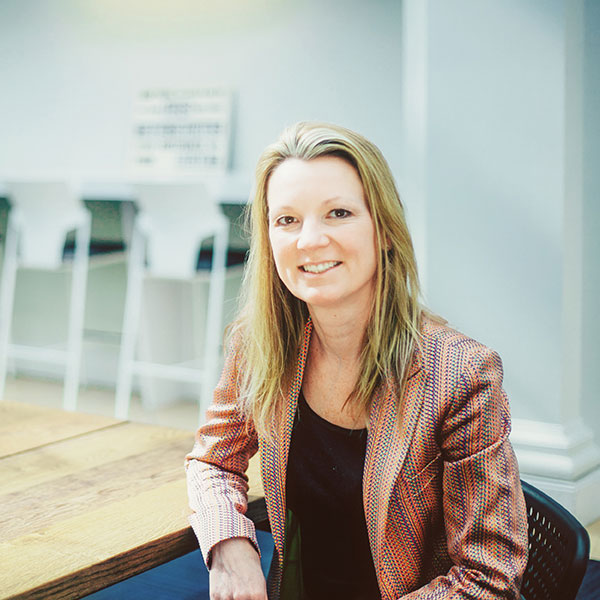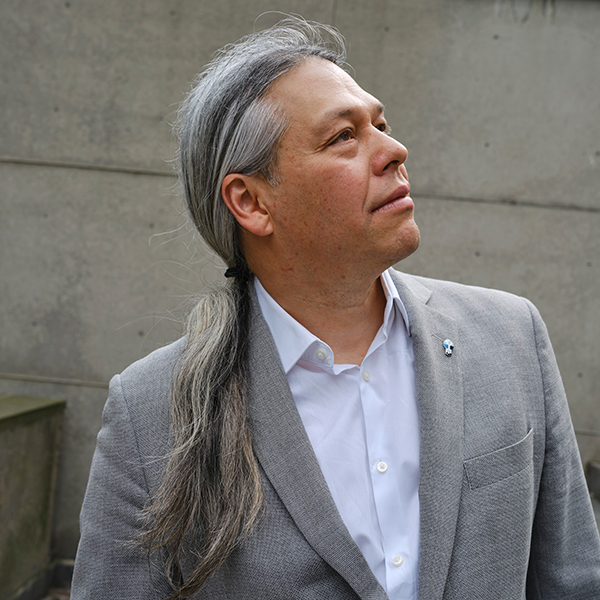When Jennifer Reynolds, BA’94, MBA’98, was working her way up the investment banking hierarchy in the 2000s, there were no senior female role models for her to emulate. “I was promoted several times, but the more senior you become, the more you recognize the barriers inherent in the system. When you start having children, questions are asked: ‘Are you still dedicated to your career? Do you really want to be in a leadership role?’”
In recent years, she says, the capital markets industry has made progress in recruiting women, and is more progressive about maternity-leave policies. Yet it remains male-dominated at the top echelons. “It’s a bit chicken-and-egg,” she says. “When you get more women in leadership roles, that’s when you’ll get cultural change in the organizations.” So she is pushing to correct that scarcity of females at the senior levels.
Reynolds is the president and CEO of Women in Capital Markets (WCM), a Toronto-based association that connects, coaches and advocates for women in the Canadian financial industry. Founded in 1995, WCM has grown to over 1,500 members. Though three-quarters of them are based in Toronto, WCM has recently opened chapters in Vancouver, Montreal and Calgary.
WCM provides a broad range of professional development programs and networking events for members at all stages in their careers. Its mandate is to further the advancement of women into senior leadership positions in the industry. “The organization started off very bank-focused,” says Reynolds. “Now many of the pension funds are working in partnership with us. Broadening out our representation in the financial community is critical.”
One of WCM’s key programs is Return to Bay Street, designed to help women re-launch their careers in the capital markets after an absence of two years or longer. “There are women out there who have significant experience in the industry,” she says. “Could we bring them back? Could we create an on-ramp for them so that they wouldn’t have to start again at the bottom?”
Each woman taking part in the program receives a minimum four-month paid contract position at one of seven sponsoring financial institutions, $5,000 towards an education program of her choice, and support from a WCM mentor.
“This program creates an opportunity for women that might not exist otherwise,” says Reynolds. “It’s not as easy as picking up the phone, calling your old company and saying, ‘I’m ready to come back.’ That’s just not the way it works.”
Over the past four years, the program has helped bring 34 women back into senior roles in the industry.
Reynolds is also a vocal advocate of the appointment of more women to corporate boards and management ranks beyond the finance sector. Forty-five percent of the boards of TSX-listed companies “have zero women on them,” she notes. “We’ve not seen the numbers move really at all.”
When a survey last year of 40,000 corporate directors in 60 countries cited a “lack of qualified women candidates,” as the primary reason for the low female presence on company boards, Reynolds was quick to do the media rounds to debunk that shopworn notion.
But she is reluctant to press for quotas. “In a perfect world, I would like to see a real cultural change,” a recognition “that greater gender diversity in your senior leadership teams makes companies more competitive.” The recent amendments to the Canada Business Corporations Act requiring diversity disclosure are a “good first step,” she says. But if Canadian corporations don’t respond, “it will force the government and the regulators to do more.”
Reynolds appreciates that the changes she seeks won’t occur without buy-in from male leaders. “It can’t just be a dialogue with a bunch of women in the room.” So one of her priorities has been to involve more men in the group’s efforts. Last year, 500 men attended WCM’s 80 networking events, and 35 of its guest speakers were men.
When the Toronto-born Reynolds enrolled at McGill, she planned to study political science and then law. However, she enjoyed her first-year economics class so much that she decided to a double major in poli sci and economics. Then, while working in Montreal for two years, she met some investment bankers and discovered what challenging careers they had. “It evolved my thinking,” she recalls. So she returned to McGill to do an MBA specializing in finance.
She spent 15 years in the capital markets industry, primarily in investment banking, holding senior posts with BMO Capital Markets and Stonecap Securities, and in the venture capital industry with OMERS Ventures. While Reynolds has led WCM since 2013, she has been a volunteer with the organization since 2000, when she began going into high schools to talk to young women about careers in the capital markets.
“I expect at some point I’ll have a different leadership role in the business community, but I will always remain passionate about advocating for the advancement of women,” she says. “If you see something that isn’t right and you want to make it better, you’ve got to get involved.”



